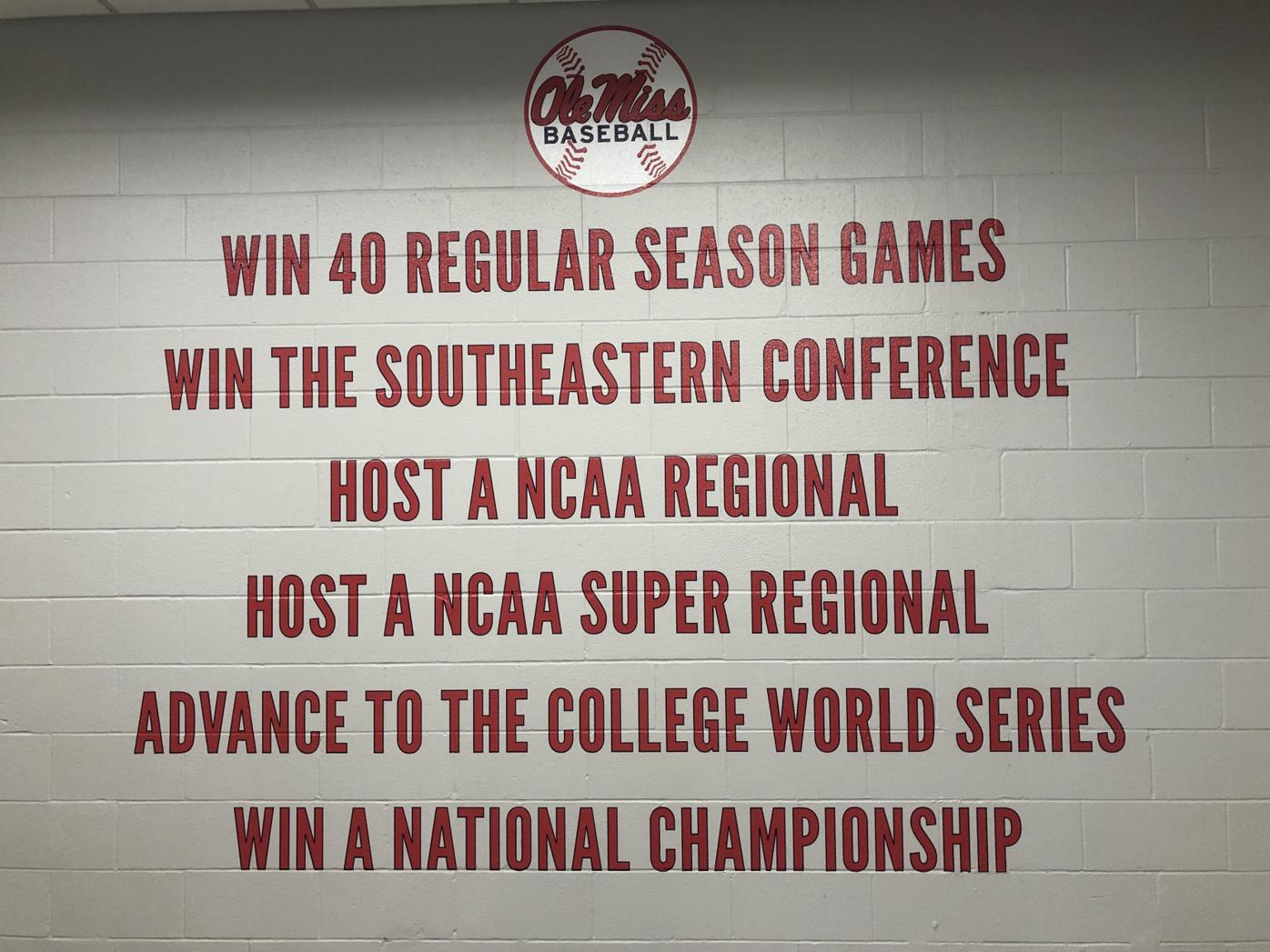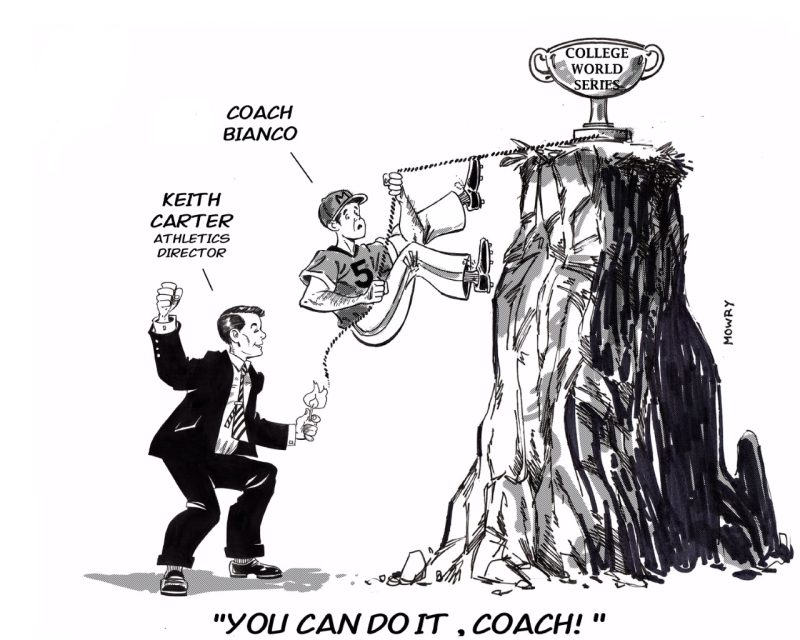A Season Like No Other
With another Ole Miss baseball season in the books, the weather getting hotter by the minute and summer break halfway over, we find ourselves at the pinnacle of a season like no other. No, I’m not talking about the Ole Miss baseball season. I’m talking about the season that comes immediately AFTER the college baseball season.
I call it, “The Bitching Season.”
The Bitching Season is a two-week roller-coaster ride full of pent up frustration, emotion and bitterness. There was a time when it wasn’t as pronounced as it is now but once the internet became so easily accessible, all it took to fuel this monster was a few Millennials, social media and some Adderall.
The season itself involves a significant percentage of the Ole Miss fan base taking the opportunity to lambast Mike Bianco for his teams’ propensity to continually fall short of reaching the College World Series. The diatribes go on and on about how the winningest coach in the history of Ole Miss baseball is such a loser and how the expectations of the program are not high enough.
As fans often do, Bianco’s coaching decisions are retrospectively questioned and used as ammunition in an argument made mostly against other Ole Miss fans. A bit strange, to say the least.
Fans of competing schools tend to scoff at the idea of Ole Miss getting rid of Bianco but there is a clear groundswell of negative sentiment among Ole Miss fans. Most of it is directed toward the coach, specifically regarding his teams’ performances in post-season play.
The general consensus is that he is great in the regular season and terrible in the post-season.
Program Expectations
So, what are the expectations of the Ole Miss baseball program? This seems to be an important question to answer if Ole Miss is truly considering cutting Bianco loose.
What is it, precisely, that everyone expects from the baseball team each year?
To be fair, the majority of Ole Miss fans don’t actually expect the team to make it to the College World Series every year. This notion gets bantered around occasionally, but most fans understand that the program is hamstringed by certain NCAA rules that other teams have found ways to get around.
The majority of fans simply want better results in Super Regional play. Bianco is 1 for 6 in Super Regionals and, fair or not, many fans believe he should at least be hitting around the .500 mark.
It’s hard to argue that a coach who consistently wins 64% of his games should not be expected to win 50% of his Super Regionals. Some might point out that the 64% is sprinkled in with mid-week games against lesser competition, but he still holds a 55% winning percentage in SEC contests.
The administration’s perspective is likely a little more complicated. They must take into account the fan’s side of things while also considering other aspects of the program that fans don’t particularly care about.
For example, look at the atmosphere surrounding big games in Oxford. Under Bianco’s leadership, baseball games have become a must-see event. Season tickets go relatively quickly and current attendance figures are at an all-time high. The stadium is almost always packed on SEC weekends and we have seen traditions develop that weren’t there 25 years ago (think home run beer showers).
All of these things lead to increased revenues and better marketability of the program. Knowing this, any administrator would likely cringe at the thought of having to fire the coach responsible for it all.
Finally, and most importantly, we must ask what the expectations are from within the program. What do the coaches expect out of the players? What do the players expect out of the coaches? These are questions best answered by the head coach himself.
It’s hard to tell in interviews exactly what Bianco’s expectations are. He smiles and says all the right things, but this is likely due to the fact that he doesn’t want to put unnecessary pressure on his team.
Below, you see a list of what could be viewed as the expectations that Bianco has left for his players to draw from.

Aside from the fact that an institution of higher learning would allow the improper use of indefinite articles in the facilities of those whom they are charged with educating, I would say that expectations are on par or above that of which is expected from the fans and administration.
This begs the question, however, if these are the expectations of the head coach and the team is not meeting them, what is he doing to correct the issues that are holding his teams back?
It Starts With Recruiting
Many would argue that a way to judge good coaching is to compare recruiting class rankings to final team rankings. This would give an indication of what the coach is getting out of the players he’s bringing in.
Is he taking top five recruiting classes and turning them into top five finishes or is he taking top five recruiting classes and turning them into top 25 finishes?
In Bianco’s case, it’s a bit difficult to judge because his recruiting classes are, literally, all over the place. His “average” recruiting ranking is 18th in the country but every three or four years he brings in a top five class. – It should probably be noted that these top five classes don’t always make it to the field as some players sign with the pros, opt for football, etc.
Unfortunately for the head coach, top five recruiting classes come with the expectation of top five finishes whether players make it to campus or not.
The team’s final rankings usually sit somewhere between 10th and 17th. This would indicate that Bianco is getting a bit more out of the players he signs than what their respective recruiting rankings would indicate. This is certainly good news, but the statistic itself means little to those looking for College World Series appearances.
Overall, most would surmise that Ole Miss seems to be getting their share of the best players on the recruiting trail. The question is whether that share is enough.
It isn’t uncommon to hear Bianco reference the 11.7 scholarship limit in interviews. He markedly tries not to use it as an excuse but it is clear that he believes he could be more successful with more scholarship money to hand out.
Another tidbit regarding scholarship numbers is the fact that Bianco often moves players out of their normal infield positions, turning them into outfielders year after year. This is not a practice that other teams seem to be embracing, so why is it happening with Ole Miss?
The only logical explanation is that he doesn’t have enough scholarships to pursue true outfielders. Anyone who has even played a modicum of baseball can tell you that it’s much easier to turn a shortstop into a right fielder than it is to turn a right fielder into a shortstop.
Operating this way, Bianco is able to get more for his scholarship money. Young infielders get valuable experience at the plate and older, more experienced infielders get to stay in the more important positions around the base path. Once the older players leave, the coach can move those younger players back to the infield with a year or two of SEC experience.
If Bianco had enough scholarships to give, it might allow him to recruit more true outfielders.
Another thing that I have noticed is that we always seem to be checking out of the post-season “a pitcher short.” This year, for example, we lost Hoglund and were pretty much done for the year. Going into the third game with Arizona, we all knew it was going to be a struggle.
Don’t get me wrong, Nikhazy shouldered a big part of the load and Diamond came on strong toward the end of the season. But still, that left no room for error. What if one of them had a bad game? There was no one to fall back on as that third starter, a spot that is arguably one of the most important on the team.
Having that third starting pitcher could turn good SEC weekends into great ones and off-nights in Super Regionals into salvageable series wins.
So the question remains, does Bianco have enough scholarships to compete with other schools who have more? We’ve all seen what Vanderbilt is doing with their unlimited scholarship advantage. It’s also no secret that teams like LSU, Arkansas, and Mississippi State have done things administratively to get around the scholarship limits. What is our administration doing, if anything, to help Bianco compete at the highest level? If the answer is nothing, then why are we all not asking them why?
The Pressure Cooker
Mike Bianco recently interviewed for the head coaching position at another SEC school. Personally speaking, I have a hard time blaming him for listening as it was his alma mater calling. – Think about it. If you were a successful college baseball coach at any particular school, would you answer the call if it were your alma mater beckoning with a nice raise and more scholarships to give? Of course you would.
Interestingly, after interviewing, he was not offered the position at LSU. In addition to not offering him the job, it seems that the interviewer, Scott Woodward, purposely sabotaged Bianco’s candidacy by leaking it to the press.
Not only was it a black eye for Bianco, but his alma mater had just used him as a pawn in what seems to be some kind of power play between decision-makers at LSU. Certainly a strange situation altogether.
After everyone found out about Bianco’s interview, we were informed that Keith Carter knew about the interview in advance. Kudos to Bianco for being up front with the administration, but what are we to think of the administration’s willingness to let him go interview for another job?
After all, if you’re really committed to your coach, don’t you do whatever you can to stop him? Was Carter hoping that they’d hire him away?
Some schools would fire their coach immediately if they found out that he was interviewing elsewhere, especially for a lateral-move position. What does it say about our administration’s confidence in the coach by allowing it?
In hindsight, it appears that Bianco thought he had the job. Now that the situation has concluded, however, the writing is on the wall.
- Other schools, including your alma mater, don’t want you.
- Your current bosses don’t seem to have much faith in you.
- A growing portion of the fan base is disgruntled with your team’s performance.
- One of your closest rivals just won the National Championship.
I’d say that’s a pressure cooker…or a Bianco-hater’s dream.
Work To Do
Mike Bianco has some serious work to do if he is to stay employed as the head baseball coach at Ole Miss. The pressure has been cranked up and he is well-aware of the stakes. Much he brought down on himself with that LSU interviewing debacle, but it was brewing beforehand, nonetheless.
Despite the current situation, he just got his contract rolled over into a new four-year deal with the Rebels, the maximum allowed under state law.
As we all know, it’s rare that a coach ever finishes out his tenure with a team at the very end of his contract. I would estimate that he’s probably got two more years to get back to the College World Series. His team would, literally, have to fall off the map for the administration to come calling next year. It might not take that much for the fan sentiment to sour though.
As of now, I’m hoping he’s back at the drawing board trying to figure out a way to get over this hump. Changes are needed and he knows it.
He is a smart man, a great coach and an Ole Miss Rebel. He knows the game well and he’s earned the right to keep working at it for at least another year or two. I, for one, am hoping that he is able to navigate past all this and take the team to new heights.




One Response
Bianco has done a decent job during the season (55% vs SEC) but has proven he cannot match MSU , LSU , Vandy, etc., in getting to the CWS. UM can draw another coach and should at least try to go all the way. That’s what successful college and pro teams do. Once in 20+ years is not enough.